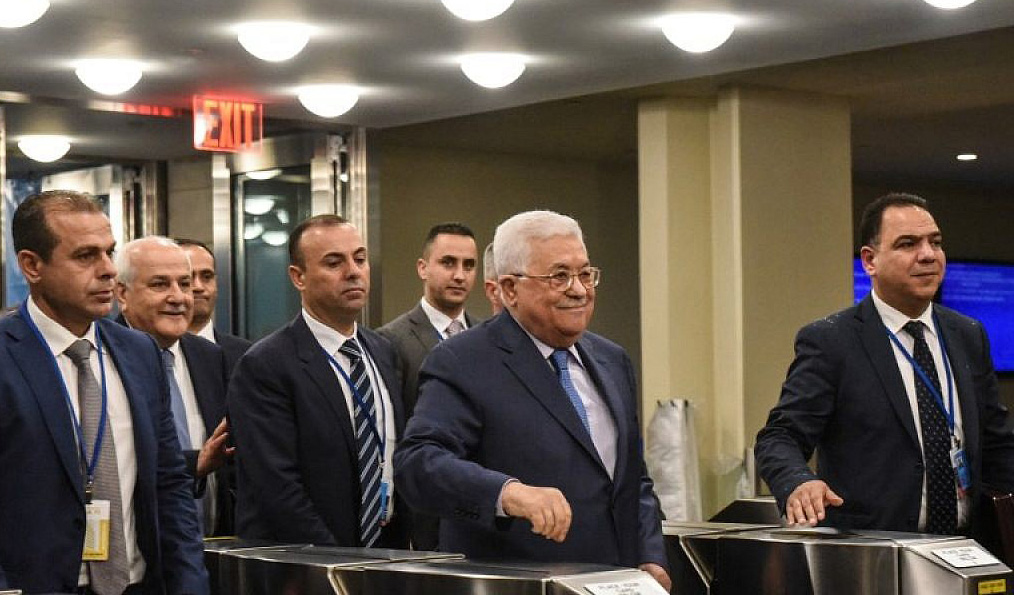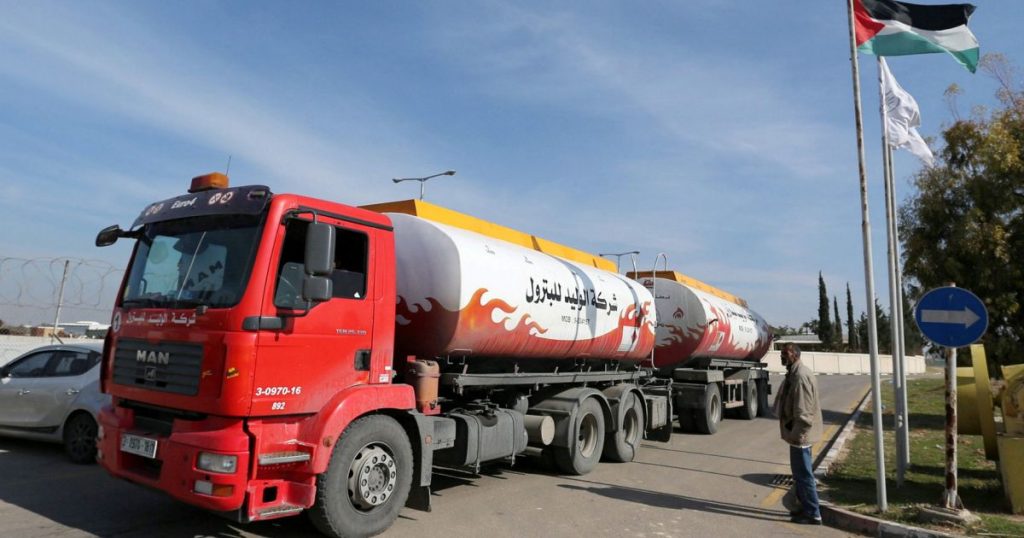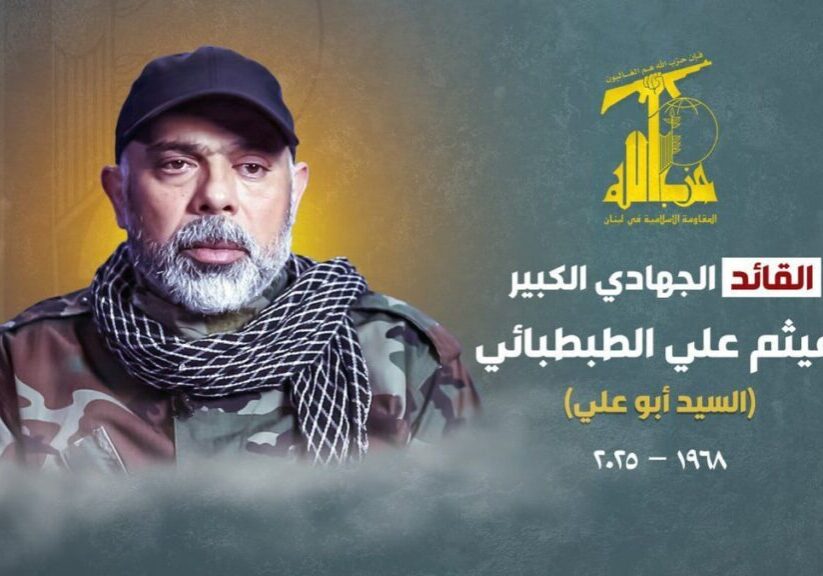Australia/Israel Review
Fighting over a Peace Plan that doesn’t exist
Nov 5, 2018 | Khaled Abu Toameh

No Palestinian – or anyone else for that matter – has been made privy to US President Donald Trump’s long-awaited plan for peace in the Middle East, which has also been referred to as the “deal of the century.” This minor detail however, has not prevented the Palestinians from rejecting the rumoured plan, on the pretext that it is aimed at “liquidating” the Palestinian cause and national rights.
Hardly a day passes without Palestinian leaders and officials across the political spectrum behaving as if they know every detail of the “deal of the century.” The Palestinians are not even prepared to wait until the US Administration actually presents a plan.
The Palestinian rejection of a yet-to-be-announced peace plan should not surprise anyone. The Palestinians will never accept any plan from a US administration they consider extremely “hostile” to the Palestinians and “biased” in favour of Israel.
Even before Trump’s decision to recognise Jerusalem as Israel’s capital in December 2017, the Palestinians had made up their minds: As the Trump Administration is on the side of Israel, and its policies seem mainly designed to appease and strengthen Israel, the Palestinians apparently decided that they should boycott the US Administration. This boycott is unlikely to end in the foreseeable future, especially in light of continued Palestinian denunciations of the US Administration and its policies towards the Israeli-Palestinian conflict.
The Palestinians, it appears, have become hostages to their own vitriolic rhetoric. It is hard to see how, after nearly a year of attacks on the Trump Administration, any Palestinian leader would be able to accept the proposed “deal of the century,” no matter what is in it, or to have any dealings with US officials. The massive anti-US campaign that the Palestinian leaders have been waging for the past few months in the media and every available platform has made it impossible, if not dangerous, for any Palestinian leader to do business with the Trump Administration.
While Palestinian hatred for Trump and his administration does not come as a surprise, what is strange is that the two Palestinian factions – Fatah in the West Bank and Hamas in the Gaza Strip – are now using President Trump’s awaited plan to throw mud at one another.
The two rival Palestinian parties have been at each other’s throats for many years and are still engaged in a power struggle. Hamas and Fatah hate each other so much that they are even prepared to accuse each other of “collaborating with the enemies,” America and Israel.
President Trump is most likely unaware that he has secret Palestinian “agents” working for him in both Fatah and Hamas. This is only true, of course, if one is to take seriously the mutual accusations made by Fatah and Hamas.
Welcome to the Palestinians’ Theatre of the Absurd, where fabrication, lies and conspiracy theories have long been part of the fabric of Palestinian culture and society.
It is a sign of the times that Fatah, ruled by Palestinian Authority President Mahmoud Abbas, would accuse Hamas of being in collusion with an Israeli-American plot “to destroy the Palestinian national project.” In other words, Fatah is telling the world that Hamas – an Islamist movement that has killed and injured thousands of Jews and many others since its establishment three decades ago – is now working with the enemies of the Palestinians against the interests of its own people.

The delivery of fuel to the Gaza power plant turned into a spat between Fatah and Hamas over alleged collaboration with the US and Israel
Consider, for example, the reaction of the Fatah and its leaders to the recent effort to solve the power shortage in the Hamas-ruled coastal enclave of Gaza. Qatar paid for the fuel needed to keep the power plant there running, while Israel facilitated the delivery of the fuel with the help of the United Nations. Outraged by the aid to the Gaza Strip, Abbas’ Fatah claimed that Hamas was “practically implementing the deal of the century.”
Fatah seems convinced that Trump’s plan aims at separating the West Bank from the Gaza Strip and establishing an independent Palestinian state only in the Gaza Strip. Fatah and its leader, Abbas, claim that Hamas’s readiness to conduct indirect negotiations with Israel – about a truce and humanitarian and economic aid to the Gaza Strip – facilitates the US Administration’s goal of “consolidating” the split between the West Bank and Gaza Strip.
According to a statement issued by Fatah in Ramallah, the (unseen) “deal of the century” requires Palestinians to “give up Jerusalem and the right of return and the right for compensation for Palestinian refugees.” Trump’s plan, according to Fatah’s imagination, also envisages separating the West Bank from the Gaza Strip “to prevent the establishment of an independent and sovereign state, on the pre-1967 armistice lines, with Jerusalem as its capital.”
What Fatah is telling everyone is that Hamas leaders are traitors because they agreed to accept Qatari-funded fuel for the power plant in the Gaza Strip. The Fatah leaders also appear to want Palestinians and the rest of the world to believe that by accepting the fuel and conducting indirect negotiations with Israel to reach a truce agreement in the Gaza Strip, Hamas has “given up the rights of the Palestinians.”
No one knows on what basis Fatah is making these claims about a plan that does not yet even exist. Perhaps these allegations can be traced to unconfirmed reports in various Arab and Western media outlets. Evidently, the Palestinians have taken this speculation as facts and built entire arguments around them.
In the West Bank, the PLO Executive Committee, another Ramallah-based Palestinian body dominated by Abbas loyalists, echoed the same charge against Hamas. After a meeting on Oct. 11, the committee “affirmed its rejection of the plan to separate the Gaza Strip from the West Bank” as part of the “deal of the century.”
Again, this is an accusation by Abbas and his officials that is aimed at convincing Palestinians that Hamas is involved in a conspiracy against them and their rights. Abbas evidently wants the world to believe that Hamas is working for Trump and Israel.
Hamas, for its part, wants Palestinians to believe that if anyone is part of the Trump Administration’s “conspiracy,” it is Abbas and his Fatah faction. Hamas’ message to the Palestinians basically boils down to this: “We’re not the traitors working with Israel and Trump. The real traitors are Abbas and his Fatah, who are imposing economic sanctions on the Gaza Strip and obstructing efforts to improve the living conditions of the Palestinians.”
“The Palestinian Authority,” said Hamas spokesman Hazel Qassem, “has paved the way for the implementation of the US vision for liquidating the Palestinian cause.” He was referring to Abbas’ refusal to lift the economic and financial sanctions which the PA President imposed on the Gaza Strip last year, apparently as part of an attempt to undermine Hamas.
The Trump Administration would doubtless be overjoyed to hear that Hamas and Fatah have become “collaborators” and “agents” working with the US and Israel. On the one hand, however, both Fatah and Hamas say they are strongly opposed to Trump’s upcoming peace plan. On the other, the two rival Palestinians parties are now accusing each other of collaborating with the Trump Administration to help him pass his upcoming “deal of the century.”
Guess who gets caught in the crossfire – again? The Palestinian people. It is they who continue to pay the price for the vicious strife between their “leaders” – in both the West Bank and the Gaza Strip.
Khaled Abu Toameh is an award-winning Palestinian journalist based in Jerusalem. Reprinted from the Gatestone Institute. © Khaled Abu Toameh, reprinted by permission, all rights reserved.
Tags: Fatah, Hamas, Palestinians






